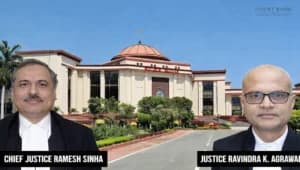The Madras High Court recently overturned the conviction of a man accused of setting his wife ablaze, ruling that there was no legally acceptable evidence linking him to the crime. The bench, comprising Justice G.R. Swaminathan and Justice R. Poornima, emphasized that while the deceased had died under tragic circumstances and had ongoing matrimonial disputes with her husband, mere suspicion was not enough for conviction.
"It is quite possible that the deceased committed suicide by self-immolation. We do not suggest that the evidence only points to suicide. However, the possibility of suicide cannot be ruled out. Matrimonial disputes alone do not establish guilt. There must be legally acceptable evidence connecting the accused to the crime." – Madras High Court
Background of the Case
The case pertained to an appeal filed by Vendaraja, who was convicted by the Fast Track Mahila Court under Sections 302 and 498A of the Indian Penal Code (IPC). The prosecution alleged that he had set his wife on fire following frequent domestic quarrels. The case was initiated based on a complaint filed by the deceased’s father, who claimed that his son-in-law frequently fought with his daughter, suspected her fidelity, and ultimately killed her by tying her legs, pouring kerosene, and setting her ablaze.
Read Also:- Madras High Court: Alleged Adulterer Must Be Given a Chance to Defend in Divorce Cases
During the trial, the prosecution relied on testimonies from the deceased’s family members and neighbors. However, the High Court found inconsistencies in their statements:
The deceased’s father claimed that the accused ran out of the house holding a knife and declared that he had "finished off" his wife. However, he admitted during cross-examination that he had not informed the police about this crucial detail.
The deceased’s sister initially stated that she was the first to enter the house and inform her father about the incident. However, in her cross-examination, she claimed to have seen the accused running from the house.
Read Also:- Supreme Court Urges Rohingya Children to Seek School Admissions, Asserts Their Right to Education
A key witness, who lived nearby, testified that he heard the deceased screaming 15 minutes after the accused had left the house, contradicting the prosecution’s claim that the accused locked the house after setting his wife on fire.
The court noted that a person set ablaze would scream immediately, making the testimony favoring self-immolation more plausible.
The High Court highlighted several gaps in the prosecution’s case. The case heavily relied on circumstantial evidence, and no direct evidence linked the accused to the crime. Additionally, the house key, allegedly used to lock the deceased inside, was recovered in a manner that raised doubts about its authenticity. The testimonies of key witnesses were inconsistent and did not align with forensic findings. The medical report showed that the deceased had 100% burn injuries, but there were no signs of struggle, making it difficult to believe that she was forcibly restrained before being set ablaze. These inconsistencies raised reasonable doubt regarding the prosecution’s claims.
Read Also:- Supreme Court: Disputed Questions of Fact Do Not Bar High Court from Granting Relief Under Article 226
Considering the discrepancies in witness testimonies and the lack of conclusive evidence, the Madras High Court ruled in favor of the accused.
"The prosecution has not established its case beyond reasonable doubt. Mere suspicion, however strong, cannot replace proof. The trial court failed to address contradictions in the witnesses’ statements. The conviction is set aside, and the appellant is acquitted of all charges." – Madras High Court














